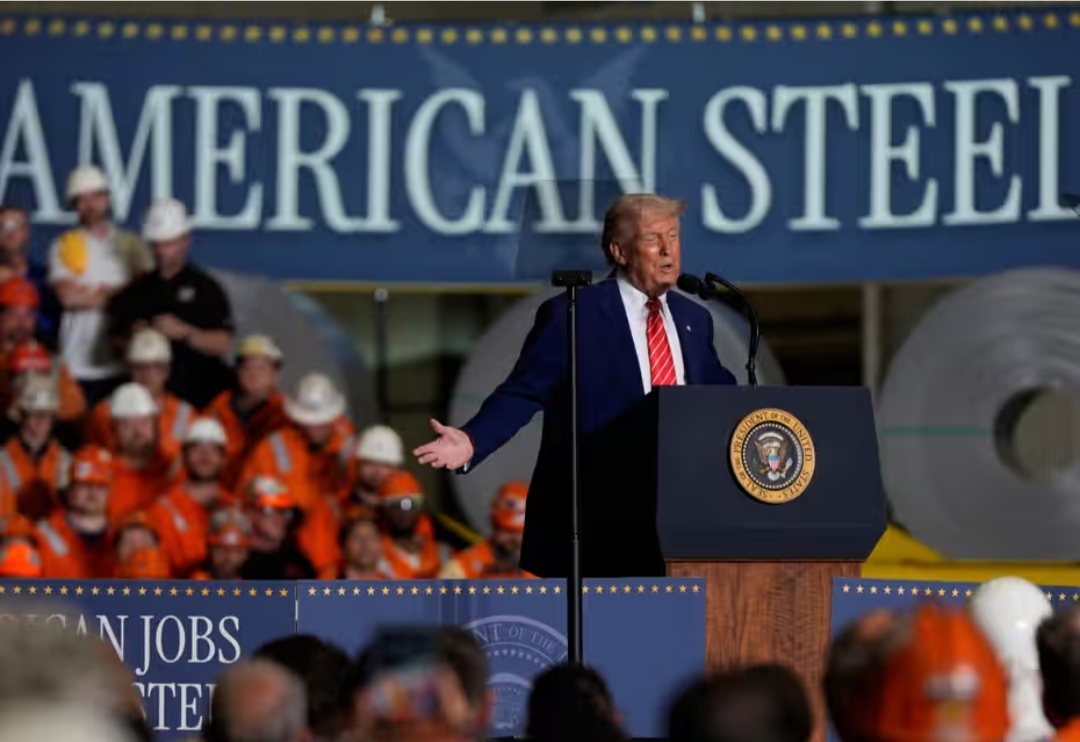On May 30, 2025, former President Donald Trump announced a significant escalation in U.S. trade policy by doubling tariffs on imported steel and aluminum from 25% to 50%. This move coincided with his celebration of a controversial deal between U.S. Steel Corp. and Japan's Nippon Steel Corp., which he described as a "blockbuster" partnership involving over $14 billion in investments to enhance American steel production.
The U.S.-Japan Steel Deal
The proposed partnership between U.S. Steel and Nippon Steel aims to revitalize American steel manufacturing. Trump emphasized that U.S. Steel would maintain control, with no layoffs or plant closures. The agreement includes Nippon Steel investing billions, notably $2.2 billion in Pennsylvania and $7 billion for facilities and mines across several states, potentially creating over 100,000 jobs.
However, the exact nature of the deal remains ambiguous. While Trump described it as a partnership, U.S. Steel referred to it as a full acquisition. This discrepancy has raised concerns about the control and structure of the merged entity, with discussions of "golden shares" and conflicting reports about Nippon’s role.
Labor Union Concerns
The United Steelworkers union has expressed opposition to the merger, citing concerns about national security and labor rights, especially with the expiration of their labor agreement nearing. They are skeptical about the assurances of no layoffs and the maintenance of all blast furnaces for 10 years.
Japan's Response
Japan has formally requested an exemption from the increased tariffs, emphasizing its role as a close economic partner that has invested heavily in the U.S. economy. However, U.S. officials have not provided any assurances regarding exemptions. Japan's trade minister, Yoji Muto, highlighted the potential negative impact on Japanese companies and indicated that the government would take necessary measures to mitigate the effects.
Global Repercussions
The tariff hike has elicited strong reactions globally. Countries like Canada and members of the European Union have criticized the move, with Canadian Prime Minister Justin Trudeau calling the tariffs "unjustified" and vowing swift retaliation. The European Union has also pledged to implement countermeasures.
Economic Implications
Economists warn that the increased tariffs could lead to higher costs for industries reliant on steel and aluminum, potentially resulting in increased prices for consumers. There are also concerns about potential trade wars and the impact on global supply chains. The uncertainty surrounding the U.S.-Japan steel deal adds to the economic unpredictability.
Trump's decision to double steel and aluminum tariffs marks a significant shift in U.S. trade policy, with far-reaching implications for domestic industries, international relations, and the global economy. While the proposed deal with Nippon Steel promises substantial investments and job creation, the lack of clarity and concerns from labor unions and international partners underscore the complexities and potential challenges ahead.
Key Takeaway
On May 30, 2025, former President Donald Trump announced a significant escalation in U.S. trade policy by doubling tariffs on imported steel and aluminum from 25% to 50%. This move coincided with his
